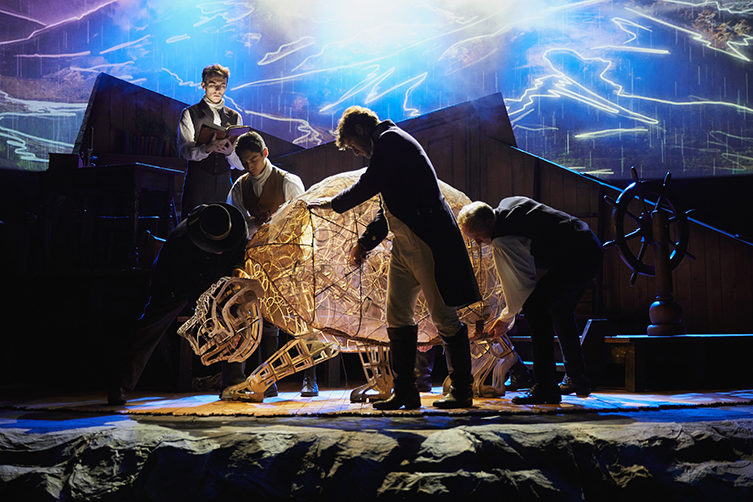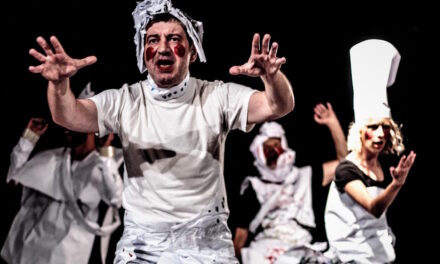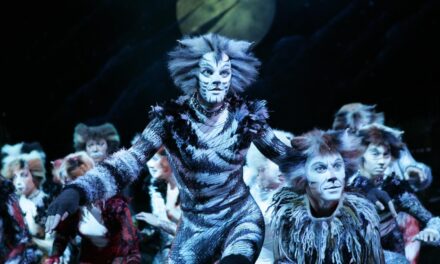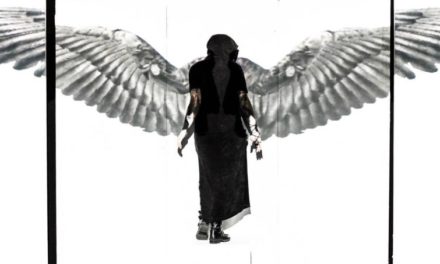Less is more.
When it comes to theatre-making, there is hardly a more relevant maxim than this line of verse, originally attributed to the 19th-century poet Robert Browning. The nature of young ambition is such that it wants the world and it wants it now. This was perhaps what the makers of this piece, David Morton and Nicholas Paine, might have taken as their inspiration from the historical fact that Charles Darwin was only 22 as he traveled the world on his first career-transforming expedition on HMS Beagle. When they heard this story Morton and Paine were themselves young men with their sights set high. Originally from Australia, the founding pair of the Dead Puppets Society were at the time (in 2013) based in Cape Town where they apprenticed themselves to their role models, Handspring Puppet company, of the War Horse fame. The story of Charles Darwin’s first expedition became an obsession that the pair then took to their puppetry residency at St. Anne’s Theatre in New York, and eventually back to Queensland where a full script of The Wider Earth was commissioned from the company.
Somehow, the work’s arrival at London’s National History Museum–which, as a custodian of Darwin’s legacy, seems like the most natural home for this piece–is a bit of an anti-climax. Where one might easily have expected a site-specific promenade piece, a conventional sit-down affair seems considerably less exciting. The piece is big on special effects–the surround sound and fancy video projections combining maps, landscapes, and animations seem intended to give the family audiences the cushy feeling of being in a cinema (though the rigged up seats here are far from the comfort levels of your local Odeon even when they are most questionably priced at £49.50 a go). Finally, content-wise, the piece demands that we note its multiple and sometimes competing ambitions in not only painstakingly relating the biographical detail of young Darwin, his polymathic interest in the classics and botany and geology in among other fields, the juxtaposition of his emerging worldview to that of the all-pervading Biblical one, but also the noble part played by the Wedgwood family (the world famous bone china dynasty to which Darwin belonged by birth and by eventual marriage to Emma Wedgwood) in the early efforts towards the abolition of slavery.
This dramaturgical approach is disappointing in several ways. Not only does it prioritise a linear narrative approach over a potentially conceptual one (I quote here the dismay of my scientist companion that the piece lacked a conceptual core even though the concept of evolution itself was easily available to it), but it also risks a potentially hagiographic approach to its main subject, Charles Darwin, played all along with unvarying and increasingly grating childlike innocence by Bradley Foster. For all of Charles Darwin’s monumental contribution to modern science, any balanced truth-seeking account of his life must also include some complexity and nuance, or at least an acknowledgment of the position of privilege that facilitated such a contribution taking place so early in one’s life.
To return briefly to the aforementioned Robert Browning: following the mythical loss of the love of his life, Elizabeth Barrett, the poet managed to find solace only in the intellectual charms of another Wedgwood, Darwin’s niece Julia in this case, who was apparently a fascinating thinker and critic of some of Darwin’s own ideas. This tiny historical fact, seems to me a lot more potent dramaturgically speaking, than the story of a young man traveling the world, for example.
I can imagine that the prospect of representing Darwin’s first encounters with various species of the natural world seemed an attractive challenge to a theatre company specializing in puppetry–however, surprisingly, in this production, the puppets end up taking quite a back seat. Perhaps this was the fault of the Queensland Theatre which commissioned a “script” rather than a theatre piece made within the idiom of the company working primarily with the language of puppetry. Perhaps we have not completely shaken off some of the outdated theories of creation within the theatre world itself, and especially the 19th-century idea that the literary play comes before performance?
To this, the only appropriate response seems another maxim, this time, coming from Darwin himself–Adapt, or die!
This post was written by the author in their personal capacity.The opinions expressed in this article are the author’s own and do not reflect the view of The Theatre Times, their staff or collaborators.
This post was written by Duška Radosavljević.
The views expressed here belong to the author and do not necessarily reflect our views and opinions.


















